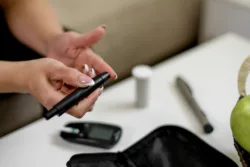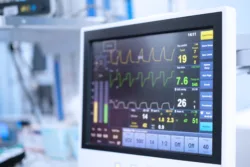Medication-Assisted Treatment in Pennsylvania

The federal government has awarded a $3 million grant focused on increasing accessibility to Medication-Assisted Treatment (MAT) in rural areas to Pennsylvania’s Department of Human Services.
According to Governor Tom Wolf’s press release, 34 percent of Pennsylvanians who live in rural areas are considered medically underserved. This means they may not have the resources or treatment options necessary to help them overcome opioid dependence.
Building a Full Continuum of Care
Following an increased media focus on opioid and heroin abuse, as well as a steady increase in opioid-related deaths in Pennsylvania, the grant will enable state efforts to raise awareness of addiction and opioid issues among primary care providers and build a full continuum of care for individuals participating in a MAT program.
The grant, entitled “Increasing Access to Medication-Assisted Treatment in Rural Primary Care Practices,” will also allow the Department of Human Services to double the number of primary care providers who can provide Opioid Use Disorder (OUD) treatment through MAT.
Increasing the number of primary care providers who can provide MAT is crucial to making treatment more convenient and accessible for those who need it.
Additionally, the DHS will address existing barriers to receiving OUD care by:
- Developing an implementation team that assists primary care providers in establishing MAT services in their practices
- Offering continuing education to practices providing MAT through webinars with addiction experts
- Providing teleconsultation services that allow physicians to speak with an on-call addiction specialist who can assist in building treatment plans
- Making telepsychiatry services available to patients in practices participating in the grant
Medication-Assisted Treatment at Pyramid
“Increasing Access to Medication-Assisted Treatment in Rural Primary Care Practices” is a three-year grant beginning on September 30, 2016.
Pyramid Healthcare currently provides MAT services at several locations, including:
- Dolminis
- Altoona Outpatient
- Chambersburg Outpatient
- Foundations Medical Services
- Pittsburgh Outpatient
- York Methadone Maintenance
We focus on treating the physical symptoms of opiate withdrawal while using counseling programs to address emotional and mental symptoms and enable the individual to be successful on their journey to recovery.
If you believe you or someone you know would benefit from MAT treatment with Pyramid Healthcare, call (888) 694-9996 today.
References:
The federal government has awarded a $3 million grant focused on increasing accessibility to Medication-Assisted Treatment (MAT) in rural areas to Pennsylvania’s Department of Human Services.
According to Governor Tom Wolf’s press release, 34 percent of Pennsylvanians who live in rural areas are considered medically underserved. This means they may not have the resources or treatment options necessary to help them overcome opioid dependence.
Building a Full Continuum of Care
Following an increased media focus on opioid and heroin abuse, as well as a steady increase in opioid-related deaths in Pennsylvania, the grant will enable state efforts to raise awareness of addiction and opioid issues among primary care providers and build a full continuum of care for individuals participating in a MAT program.
The grant, entitled “Increasing Access to Medication-Assisted Treatment in Rural Primary Care Practices,” will also allow the Department of Human Services to double the number of primary care providers who can provide Opioid Use Disorder (OUD) treatment through MAT.
Increasing the number of primary care providers who can provide MAT is crucial to making treatment more convenient and accessible for those who need it.
Additionally, the DHS will address existing barriers to receiving OUD care by:
- Developing an implementation team that assists primary care providers in establishing MAT services in their practices
- Offering continuing education to practices providing MAT through webinars with addiction experts
- Providing teleconsultation services that allow physicians to speak with an on-call addiction specialist who can assist in building treatment plans
- Making telepsychiatry services available to patients in practices participating in the grant
Medication-Assisted Treatment at Pyramid
“Increasing Access to Medication-Assisted Treatment in Rural Primary Care Practices” is a three-year grant beginning on September 30, 2016.
Pyramid Healthcare currently provides MAT services at several locations, including:
- Dolminis
- Altoona Outpatient
- Chambersburg Outpatient
- Foundations Medical Services
- Pittsburgh Outpatient
- York Methadone Maintenance
We focus on treating the physical symptoms of opiate withdrawal while using counseling programs to address emotional and mental symptoms and enable the individual to be successful on their journey to recovery.
If you believe you or someone you know would benefit from MAT treatment with Pyramid Healthcare, call (888) 694-9996 today.
References:







